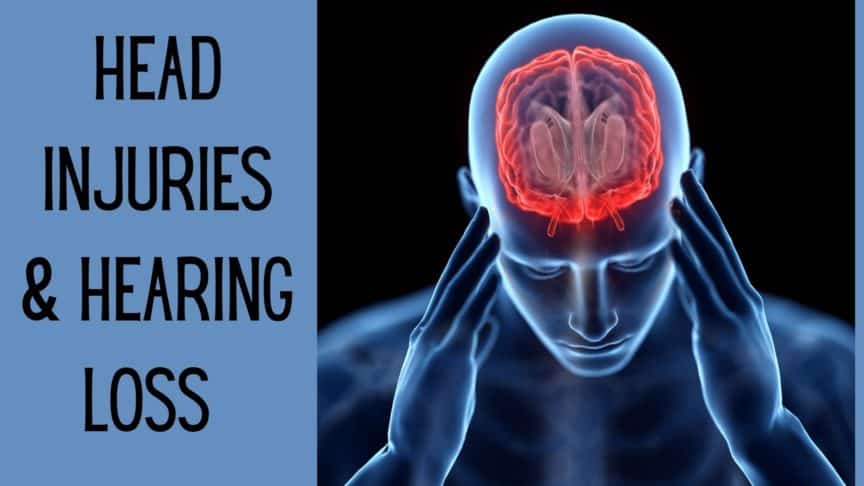- How to Care for Infants With Hearing Loss - April 15, 2024
- Hearing Aid Tips for Runners - April 5, 2024
- Overcoming Misconceptions Around Hearing Aids - March 27, 2024
When we think of hearing loss, we most often default to hearing loss present from birth, or that acquired over time due to sound or aging. But in some cases, it is a sudden and traumatic event, like an accident, that produces hearing loss in a life. While these dramatic episodes are less common, we are finding out more about the impact of head injuries on hearing loss.
It might even be surprising to hear that audiologists are frequently involved in the diagnosis and treatment of traumatic brain injuries. This is because the range of systems that have the potential to be impacted in the wake of a traumatic brain injury vary widely — the brain is after all a central processing center for most of the body’s functions — and hearing is one component of health that is sometimes implicated.
Traumatic Brain Injuries
A traumatic brain injury, sometimes abbreviated as a TBI, is one type of head injury resulting from a violent blow to the head. Most TBI cases are mild with no visual bruising on the brain and the recovery window typically hovers between three to six months. However, visible damage to the brain is discernible in moderate-to-severe cases where rehabilitation can extend up to one year with some residual long term effects, like motor, personality or cognitive changes.
Statistically, traumatic brain injuries most often occur in males aged 15-35 years. In the older population, traumatic brain injuries are most likely to occur because of a fall.
We are understanding much more about the lasting implications of mild head injuries, as is reflected in the way we are changing our responses to head injuries even within youth sports. In previous generations, we might have told a young football player to ‘walk it off’ after a skull-rattling impact. Now, of course, it is clear that concussions — a type of traumatic brain injury — require monitoring and recovery time.
Physical Damage To The Ear Structure
There are different ways that head injuries can disrupt hearing. Beyond hearing and understanding the audible sound of the world, damage to the mechanics of our hearing impacts other systems of the body. Vestibular problems, relating to the inner ear and balance, are common when the structure of the inner ear is compromised. Vertigo and nausea or difficulty with balance and coordination are sometimes outcomes of head trauma.
Tinnitus, or the presence of a ringing or buzzing heard with no external sound present, is also a symptom of auditory issues that can arise after a traumatic brain injury and damage to the hearing system.
Of course, if the inner ear structure is damaged, it can also result in an inability to receive sound information because the delicate cells of the inner ear act as the main receivers of sound waves. This would directly result in at least some degree of hearing loss, possibly quite profound.
Damage To The Auditory Processing Center
Of course, there is much more to our hearing than the receiving structure of our ear. Once sound information is receptive by the inner ear, it is sent to the brain via the auditory nerve. In the brain, this information is translated into sound and comprehension.
Traumatic brain injuries do cause bruising, sometimes even hemorrhaging, in the brain that can do long term damage to body functions. Speech, language and comprehension can be interrupted or changed if that location of the brain is injured.
Treatment For Traumatic Brain Injuries
Thankfully, as we understand the wide ranging effects of traumatic brain injuries we also understand how to better treat them. Always requiring patience and often including a range of experts from different specializations, this multidisciplinary approach can help victims of traumatic brain injury make more successful recoveries.
For those who are experiencing hearing loss as a result of their injury, there are some therapeutic solutions that may ease recovery. Eliminating background noise can help them to focus on one voice or speaker, making comprehension easier. Assistive listening devices, like hearing aids, may help to restore some of the sound amplification needed due to damaged inner ear function. Being mindful about facing someone who has difficulty hearing or comprehending verbally can assist in providing body cues and lip-reading for more comfortable understanding.

